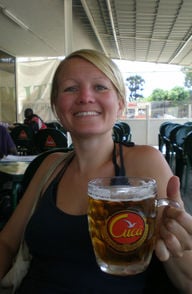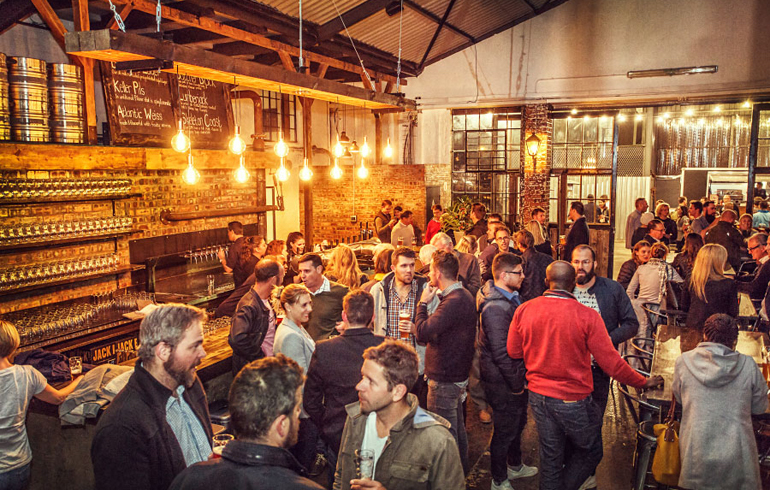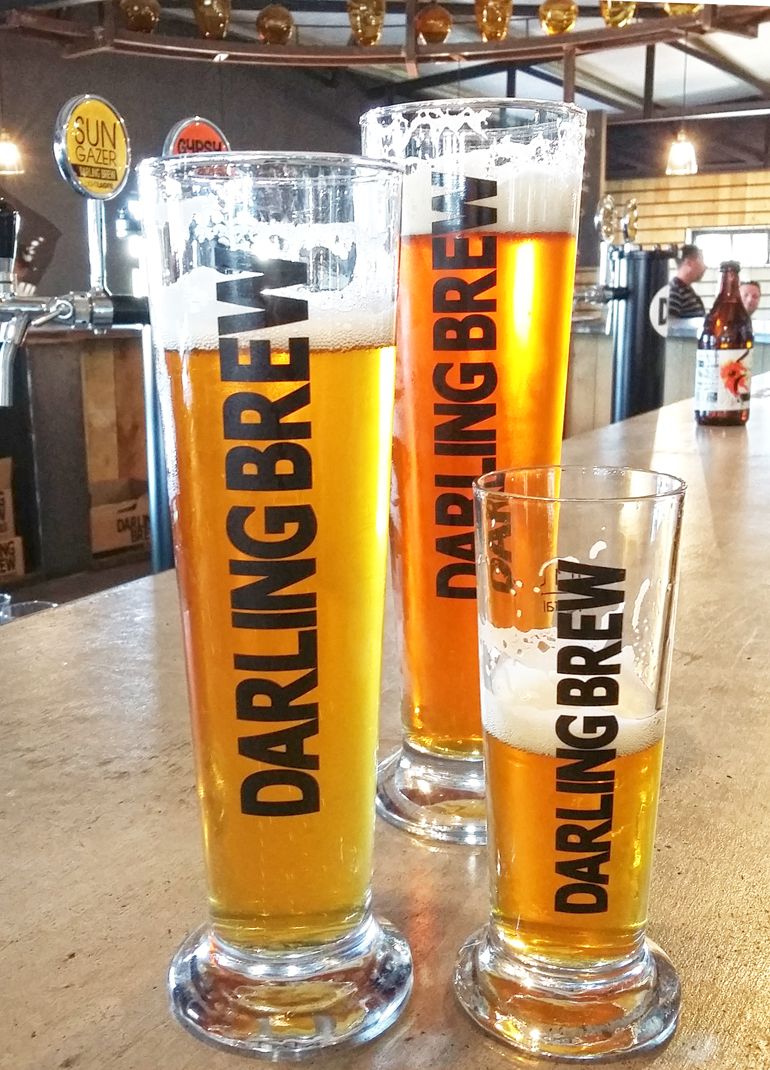Start 14-Day Trial Subscription
*No credit card required

The Evolving Craft Beer Scene of South Africa
This year, on IPA Day (August 4th), some bars in Cape Town, South Africa, will have upwards of 25 India Pale Ales on tap. This might not seem like anything spectacular, but consider this: Five years ago, few people in South Africa knew what an IPA was and not a single local brewery produced one.
South Africa has long been a land of lagers. SABMiller, the world’s second-largest brewing company (which will soon be taken over by the world’s largest, AB InBev) is based in South Africa and controls around 90% of the local market. The corporation has always championed pale lagers and until quite recently, beer drinkers had very few other options. But craft beer is booming here now, and things are changing rapidly.
The country’s first microbrewery – Mitchell’s Brewery – launched way back in 1983 and while its founder Lex Mitchell is sometimes referred to as the “godfather of South African craft beer” it would be another couple of decades before the concept of craft beer would truly take off. And it wouldn’t be a massively hopped IPA or a thick, potent stout that would lure people away from their mainstream beer, but rather another clean, simple lager.
This shift occurred in 2007, when local lad Ross McCulloch and his Canadian wife Megan MacCallum set up Jack Black Brewing Company in Capetown and managed to convince macro brand-loyal South Africans to switch to a flavorful, microbrewed lager.

Cape Town's Jack Black Brewing Company helped convince macro-loyal South Africans to switch to more flavorful craft lager. (Photo Credit: Laura McCullagh)
When Jack Black’s lager first found its way into South African fridges, there were fewer than 10 microbreweries across South Africa, a country about half the size of the Midwest with a population of 55 million. Today, less than a decade on, there are more than 160 craft breweries scattered about the country, with hundreds more navigating the web of red tape to obtain a brewing license. Jack Black is still a major player in the industry, and following nine years of contract brewing at various breweries around Cape Town, the brand finally has its own brewhouse, a 25-barrel (3000-litre) Kaspar Schulz system imported from Germany.

The brewery opened at the start of July in a small industrial complex in Cape Town’s suburbs. The lager is joined on tap by a pilsner, a pale ale, a weissbier and an IPA. Beer-loving locals swarm the hip taproom with its furniture fashioned from brewhouse packaging materials, street art etched on the walls and food trucks parked outside. It might seem like a small setup, but by South African standards, Jack Black’s new brewery is a significant size. The average batch of beer produced in South Africa is around 3.5 barrels (400 litres) and few breweries put out more than 42 barrels (5000 litres) in a month.
Few South African craft breweries produce more than 42 barrels per month, including Darling Brew, which tops out at 25.
Of course, larger producers do exist. Darling Brew, another local veteran that also began as a contract brewer, launched their 25-barrel (3000-litre) brewery complete with restaurant earlier this year in the rural town of Darling, an hour’s drive north of Cape Town. Then there is Cape Brewing Company, where up to 42,000 barrels (50,000 hectolitres) of lager, pilsner, weissbier and IPA are produced each year. Sitting in the Cape Winelands, Cape Brewing Company is one of an increasing number of breweries challenging wine on its own turf. In fact, many wineries are opening small breweries on their farms, keen to get on board with the Cape’s current passion for beer and to offer something a little different in the heavily saturated South African wine market.



